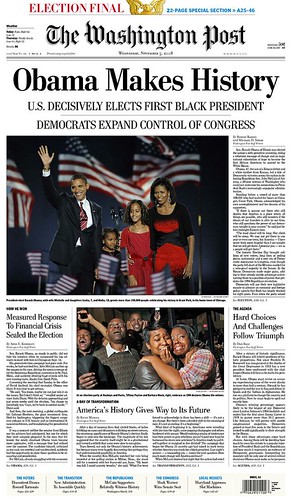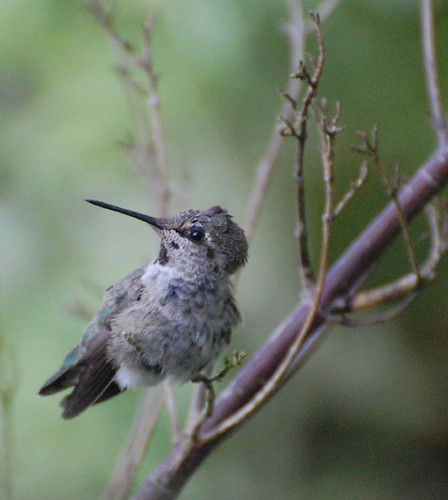It's no secret that our society has gone utterly mad. We seem to have a heightened sense of our own
mortality, and yet a dogged determination to live as close to forever as we can
possibly manage--a dynamic that in itself is surely responsible for a great
deal of our societal craziness. The
health care crisis, gun worship, xenophobic targeting of immigrants, war mongering (taking it to "them"
before "they" can bring it to us)--all these things have their root
in our bizarre, hyper-inflated instinct of self-preservation. And nowhere is this more apparent than in our
society's increasing phobias about food.
As one who spent my formative years in the food business, I
have observed the descent into insanity characterized by what people are
willing to consume, and how they expect it to be presented to them. These days, food must be presented to the
consumer exactly as ordered, down to
the most intricate detail of temperature, seasoning and appearance, and it must
be done not merely with a smile, but with the lips of the server planted as
firmly on the buttocks of the consumer as humanly possible. The personal allergies, sensitivities, dislikes, and phobias of every individual
consumer have become public responsibility.
I don't know why anyone decides to open a restaurant or market anymore. The standards are impossible.
You would think that all this obsessing about food would
have the net effect of improving the quality of what is available for us to
eat. The sad reality is, the perception of
whether a given food is actually "good" or "bad" is dictated
by the theater attached to it. With the
proper combination of press releases, chef testimonials and million-dollar ad
bytes aired during the "Big Game," any PR firm worth its salt could sell buckets
of hog slop to our nation of finicky diners.
But, seriously, has anyone besides me noticed that, in
spite of all the hype about foods that are bad, good, delicious, trendy,
"foodie" approved, our choices at the grocery store have become more
and more limited, while the food that IS available tastes less and less like...what
it's supposed to taste like? Juiceless
tomatoes developed for their shipability.
Apples, potatoes and onions that don't see the grocer's shelves for at
least a year after harvest, yet have us fooled into calling them
"fresh." Meat that has been
brined, tenderized, injected and dyed, ostensibly to improve its taste and
appeal, but is so full of dangerous bacteria that it has to be cooked to death
in order to render it safe to eat. And
yet, an entire industry grew out of the hyped-up notion that a substance that
has been a staple of the human diet for 12,000 years is suddenly the most
dangerous thing a person can possibly ingest.
We'll eat our plastic tomatoes and tasteless apples and tenderized mystery
meat without a murmur, but god forbid a molecule of gluten should pass our
lips.
And don't get me started on the prices! Protein prices are inflated and
volatile. The commodities market has
become a giant roulette wheel, where the odds are stacked in favor of amoral
speculators looking to make a fast buck, and against American consumers just
trying to put something edible and nutritious on the table. Seafood and red meat are already nearly beyond
the budget of the typical middle class family.
How long will it be before we are even scraping the bottom of our change
purses to buy chicken?
And speaking of chicken...
The other day, I encountered a truckload of chickens
travelling up the freeway. I pulled over
to pass, and couldn't help but look over at the occupants of the cages, stacked
ten or fifteen high, god knows how many deep, hundreds of cages crammed on to a
40' trailer, open to the elements. White
feathers blew crazily in the cyclone produced by the truck's 60 mph cruising
speed. Hampered by the force of the wind, the size of the cages, and the weight
of their out-sized breasts, the birds
could not stand or move about. They
could only flop around miserably, helplessly, from time to time exposing their
red, featherless, chapped hindquarters--made that way, I'll assume, by their
inability to move out of their own filth.
Those birds looked so wretched that I nearly burst into
tears.
And then, I thought: "...and we eat that."
I am not a vegetarian.
I don't believe that there is anything inherently cruel in the way that
nature has ordained for some species to consume others for food. Human beings are omnivores. This means that our health is best maintained
when we consume a variety of plant and animal-based foods. I think that when we mess with that balance,
it is tantamount to telling the Creator that the Creator has made a mistake by forming
us as we are...that we can do better than the Almighty at deciding how and what
we should eat. I honestly don't think
that is our place.
On the other hand, I do believe that, in a sense, we are
what we eat. Many Native American
traditions hold that the energy of an animal is transferred to the human who
eats it. Often, hunters would thank the
animal for giving up its life that the human might be fed. They might consume the heart first, in order
to be infused with the bravery of the animal.
There is nothing wrong with eating meat, but there is
something very wrong with the meat we allow ourselves to eat. What kind of energy are we putting inside our
bodies when we consume a bird that has been raised in miserable filth, that has
been thought of as "food" rather than a living, breathing animal,
that has been treated with detachment and disdain for all of its short,
wretched life? Perhaps this, in and of
itself, is the source of much of our society's fear and sadness. We EAT the fear and misery and hopelessness
of the animals we "raise" for food.
I have a freezer full of nameless chicken parts that I
bought at Costco. It's pretty much the
only protein we own right now, and I can't see the benefit of wasting the
money invested in it by throwing it out.
We'll eat it, but we are going to change our ways. In a perfect world, my recent epiphany would
result in a determination to raise and slaughter my own animals, thoughtfully and prayerfully. I'm not naive... I know that my urban
upbringing and my suburban living situation severely limit my abilities in that
direction.
But I have made a promise to myself: Going forward, I intend to be much more particular
about the protein I choose to put on my table.
I plan on researching the purchase a half or a quarter
of local pasture-raised beef. I'll
source actual free-range chickens--not "cage free" or
"organic,"--these terms can be misleading. I am after animals that have been allowed to
live as naturally as possible, and then are slaughtered humanely. I know these things exist...I just have to put
in the effort to find them and change my buying habits. I need to make the conscious decision to
invest my food dollars in a smaller quantity of animal protein from animals
that have been allowed dignity and peace, rather than stock my freezer with as
much cheap chicken and steak from Walmart as I can buy with those same dollars. I'm pretty sure my life depends on making
that change.
It's a lifestyle change from which I think we all would
benefit.




















Back in the day we'd buy a quarter or a half of beef and freeze it. Sometimes dad and a co worker would go together and divy up the cuts.The freezer was a Kenmore chest freezer, el hugo and four years younger than me.
ReplyDeleteIf you would consider also beef, may I introduce you to Shreve. Once a year she provides beef she has grass-raised herself, to various locations in the west. You have to sign up in the spring, for delivery usually in August. I recommend that you read her post from this past summer: http://honeyrockdawn.com/2015/05/star-brand-beef-2015/
ReplyDeleteShreve is the woman who rescued a coyote pup (Charlie) when ranchers wiped out the den. Charlie's blog is at http://www.dailycoyote.net/